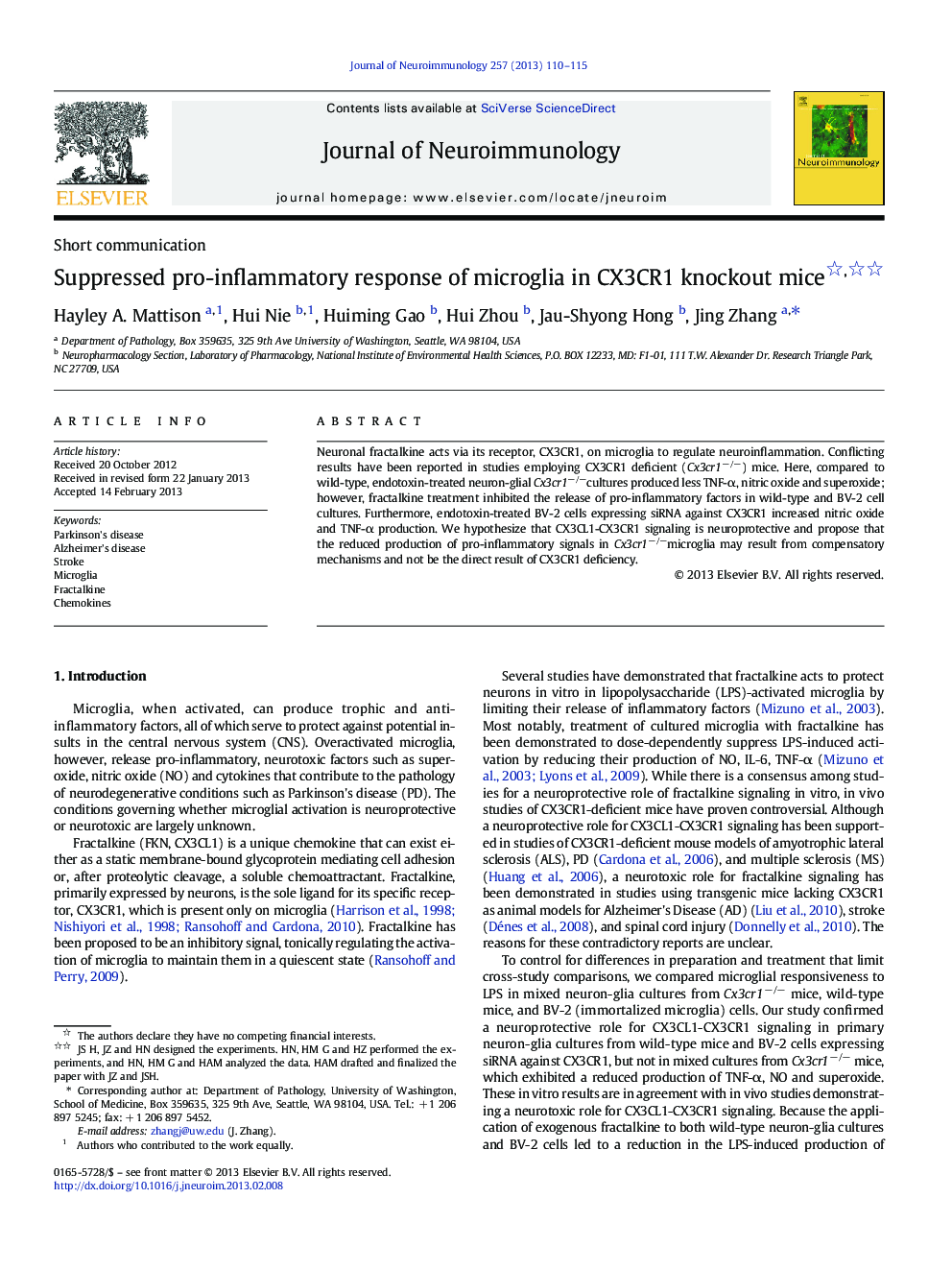| Article ID | Journal | Published Year | Pages | File Type |
|---|---|---|---|---|
| 6020725 | Journal of Neuroimmunology | 2013 | 6 Pages |
Abstract
Neuronal fractalkine acts via its receptor, CX3CR1, on microglia to regulate neuroinflammation. Conflicting results have been reported in studies employing CX3CR1 deficient (Cx3cr1â/â) mice. Here, compared to wild-type, endotoxin-treated neuron-glial Cx3cr1â/âcultures produced less TNF-α, nitric oxide and superoxide; however, fractalkine treatment inhibited the release of pro-inflammatory factors in wild-type and BV-2 cell cultures. Furthermore, endotoxin-treated BV-2 cells expressing siRNA against CX3CR1 increased nitric oxide and TNF-α production. We hypothesize that CX3CL1-CX3CR1 signaling is neuroprotective and propose that the reduced production of pro-inflammatory signals in Cx3cr1â/âmicroglia may result from compensatory mechanisms and not be the direct result of CX3CR1 deficiency.
Related Topics
Life Sciences
Immunology and Microbiology
Immunology
Authors
Hayley A. Mattison, Hui Nie, Huiming Gao, Hui Zhou, Jau-Shyong Hong, Jing Zhang,
